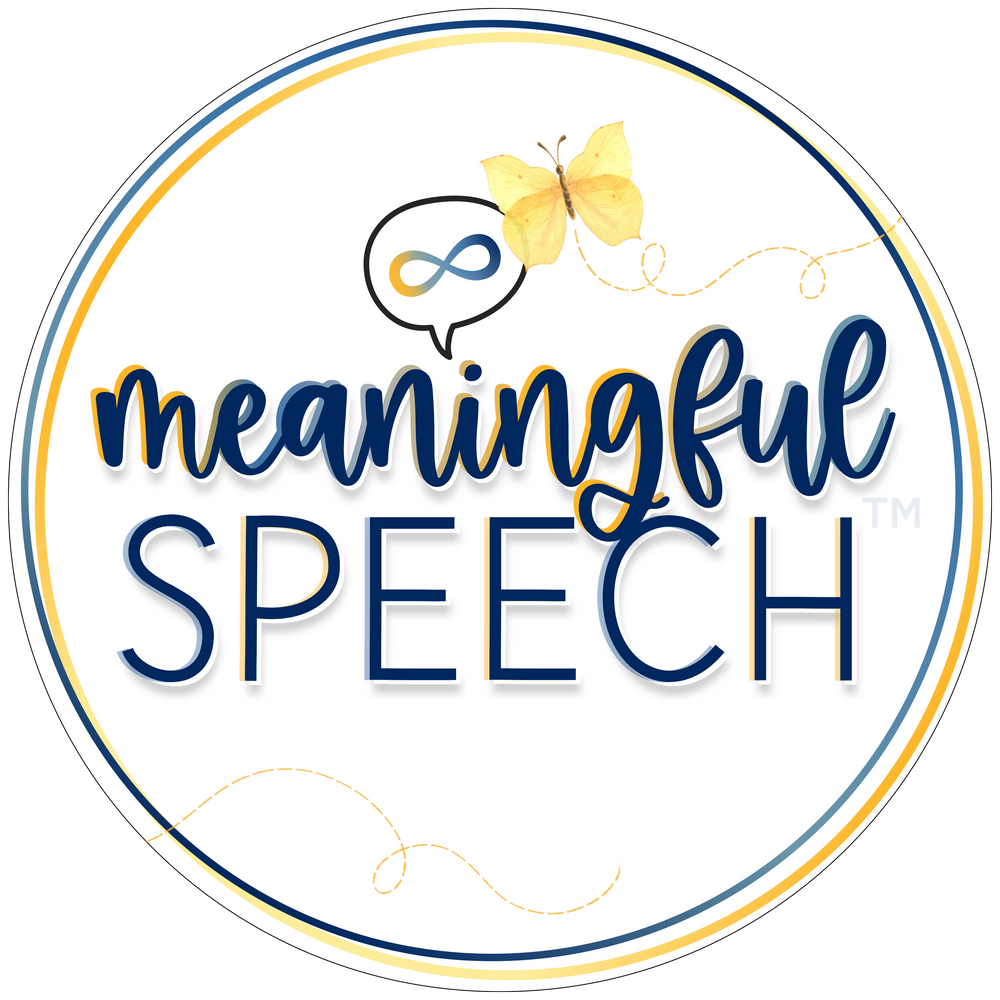The Truth about Applied Behavior Analysis (ABA) & Speech-Language Therapy
Jun 19, 2024
This topic is something that comes up often in our own practice and in conversations with parents and professionals. We want to clear up what the differences are between the professions of speech-language pathology and applied behavior analysis and who should be formulating goals to support speech-language development.
What is Applied Behavior Analysis (ABA)?
Applied behavior analysis (ABA) is largely based on behavior and its consequences, techniques generally involve teaching individuals more effective ways of behaving through positive reinforcement and working to change the social consequences of existing behavior. A BCBA (board certified behavior analyst) develops the programming for ABA services. They hold a graduate certificate in behavior analysis (BACB, 2024).
What is speech-language therapy?
Therapy provided by trained and certified speech-language pathologists who hold a graduate certificate in speech-language pathology. Speech-language pathologists (SLPs) work to prevent, assess, diagnose, and treat speech, language, social communication, cognitive-communication, and swallowing disorders in children and adults. (ASHA, 2024).
Why have autistic kids historically received ABA services?
Until very recent years, thanks to the neurodiversity-affirming movement, autism has been viewed as a disability that needed to be “fixed.” Goals created for autistic kids were based on the medical model of disability. In a nutshell, get them to look as normal as possible. Get their play to look neurotypical, get their language and social interactions to look neurotypical. Do whatever it takes to achieve this.
This has led to many autistic individuals spending years in compliance based therapies, being prompt dependent and learning how to mask. Many autistic adults have also shared their stories of PTSD. You can learn more by listening to autistic voices.
What about "new" ABA?
We have met many ABA providers who strive to be child-led and play based and are on a mission to learn more about gestalt language development and neurodiversity affirming therapies. We are here to educate ALL and will never turn anyone away based on their background, history or professional title.
However, it is important to note that the majority of ABA services (especially here in the USA) continue to operate under the medical model of disability and create goals to fix or change our autistic kids through compliance based methodology.
Many ABA clinics continue to advertise that they can “do it all” and many discourage services outside of the center.
What about working on speech and language at ABA?
Let’s be clear about something. Speech-language pathologists (therapists) are the ONLY profession trained and certified in communication therapy. Some ABA centers do see the value in having an SLP as part of their team and employ SLPs. However, many ABA centers continue to claim they can “do it all” and have BCBAs creating goals and plans to address communication difficulties. These plans are usually formulated by looking at language through only the analytic development lens. Most ABA clinics use Verbal Behavior programming to address communication. This may work for some… until it doesn’t. Many kids may get “first words” as they are encouraged to label and increase vocabulary. Eventually these kids will be labeled as having “plateaued” when the incorrect strategies are what have led them to be “stuck” in their language development.
Verbal Behavior & Gestalt Language Development
Compliance-based therapies often use what is called a “Verbal Behavior” approach. The purpose is to teach children language and it is based on principles from Applied Behavioral Analysis (ABA). It focuses on prompting language through teaching children to make requests (referred to as “mand”), label items in their environment (referred to as “tact”), answer questions (referred to as “intraverbals”) and imitate language (referred to as “echoic”). This programming goes directly against how we best support gestalt language processors through all of the stages of gestalt language development.
Taught vs. Naturally Acquired Language
Since most ABA programming will focus on teaching language versus allowing the child to naturally acquire language, the child builds up a repertoire of taught language instead of natural language. This is not the goal for gestalt language processors.
When supporting gestalt language processors, we want to model language naturally. True gestalts are natural and picked up spontaneously by the child from their environment. Gestalt language processors can listen to the language in their environment, process it, and pick up gestalts that are meaningful to them. There is no need to directly teach language by prompting or cueing gestalt language processors (unless for safety reasons). Language should be modeled naturally during child-led activities and everyday routines without expectation.
Want to learn more in-depth information about how to support gestalt language processors?
- There are many free podcasts, webinars and articles to get you started. A comprehensive list of resources can also be found on our website. We just released a new FREE masterclass on echolalia and child-led therapy that is perfect for anyone starting their learning journey or on the fence about purchasing our courses!
- Consider taking the Meaningful Speech course to learn more about how your child or client processes language, how you can help support them from echolalia to self-generated (original flexible) language, child-led therapy, and neurodiversity-affirming practices. Looking for something shorter? We have a 1-hour introductory course perfect for extended family, daycare or school staff.
- Consider taking our AAC + Gestalt Language Processing course. It will teach you how to identify, evaluate and support gestalt language processors who use AAC or who you think might benefit from AAC.
- Look for a speech-language pathologist (SLP) who "gets it" and can help you in supporting your child's language development. Check out our registry for SLPs who understand gestalt language processing and child-led therapy.
- Are you a school-based or private practice clinician looking for intake forms for new clients/students or creative visual reminder posters for your space? Check out the Meaningful Speech Marketplace.
